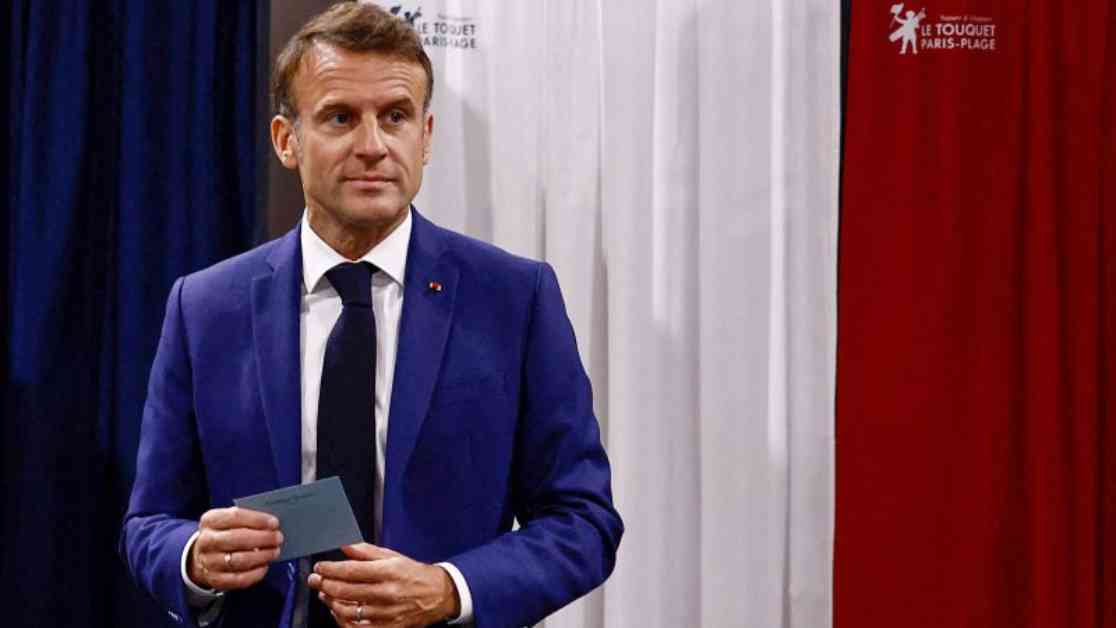Marine Le Pen’s far-right National Rally (RN) party has secured the lead in the initial round of France’s parliamentary elections on Sunday. The RN bloc received 34% of the vote, beating out the New Popular Front (NFP) coalition with 28.1% and President Emmanuel Macron’s Ensemble alliance with 20.3%, according to projections by Ipsos.
However, despite the RN’s strong showing, they may not reach the 289 seats needed for a majority in the National Assembly. This outcome could lead to a hung parliament and increased political uncertainty in France.
Projections indicate that the RN could secure between 230 and 280 seats after the second round of voting, while the NFP is expected to win between 125 and 165 seats, and Ensemble between 70 and 100 seats.
The election was called by Macron following the RN’s success in the European Parliament elections, putting his party in a challenging position. The outcome of this election could potentially force Macron to work with an opposition prime minister for the remainder of his presidential term.
The RN’s victory in the first round was met with celebration, but both Marine Le Pen and Jordan Bardella emphasized the importance of the upcoming second round. Bardella highlighted the significance of the next vote, calling it one of the most critical in the history of the Fifth Republic.
In response to the RN’s strong performance, left-wing and centrist parties are considering strategic moves to prevent the RN from securing a majority. The NFP has pledged to withdraw all candidates who placed third in the first round, aiming to block the RN from gaining additional seats.
Macron now faces the challenge of navigating a potential cohabitation scenario, where the president and the majority in parliament belong to different parties. This situation could lead to difficulties in passing laws and potential conflicts over policy decisions.
The financial implications of a far-right government in France are also a concern, as the RN has proposed significant spending increases that could clash with European fiscal rules. This could potentially lead to austerity measures and economic instability in the country.
Overall, the results of the first round of France’s parliamentary elections have set the stage for a crucial second round, with significant implications for the country’s political landscape and future direction. French voters have shown a strong desire for clarity in the political situation, setting the stage for a decisive second round of voting.






